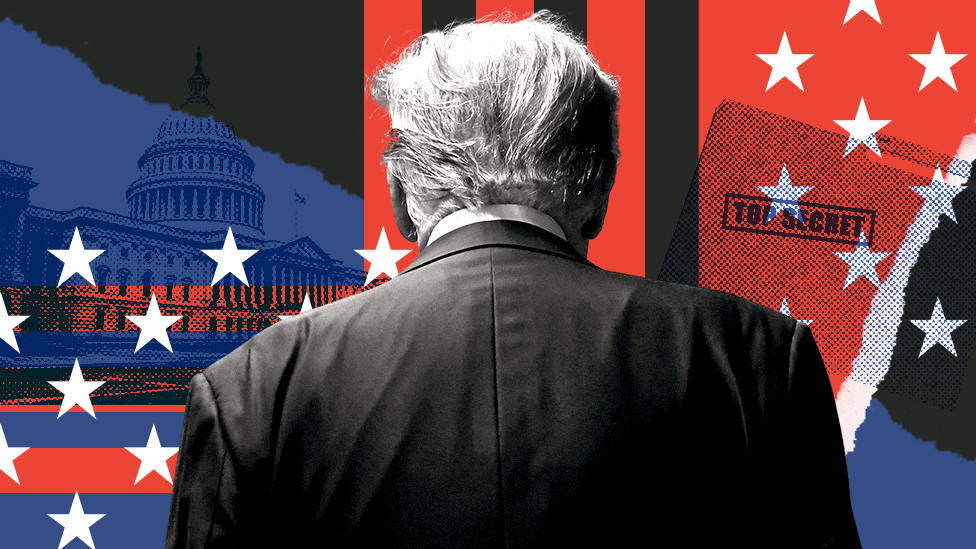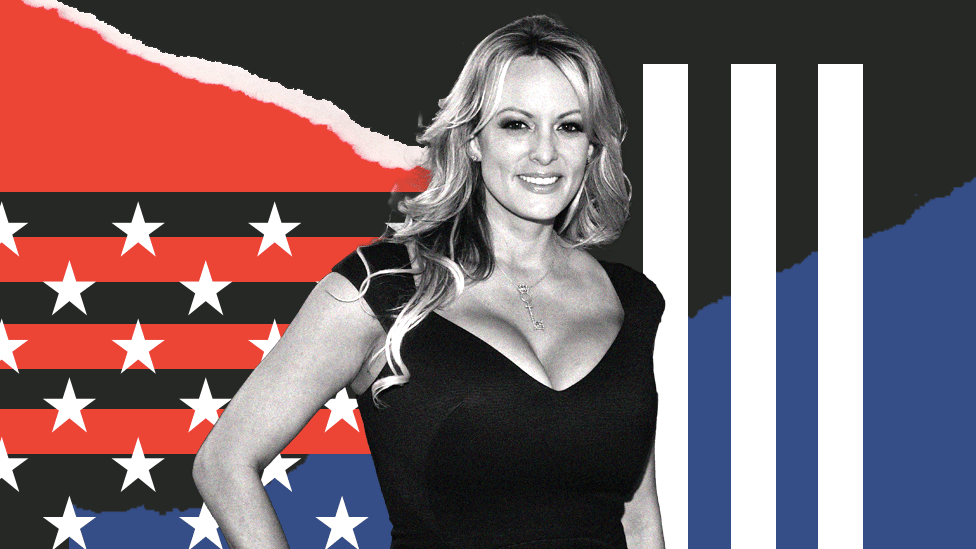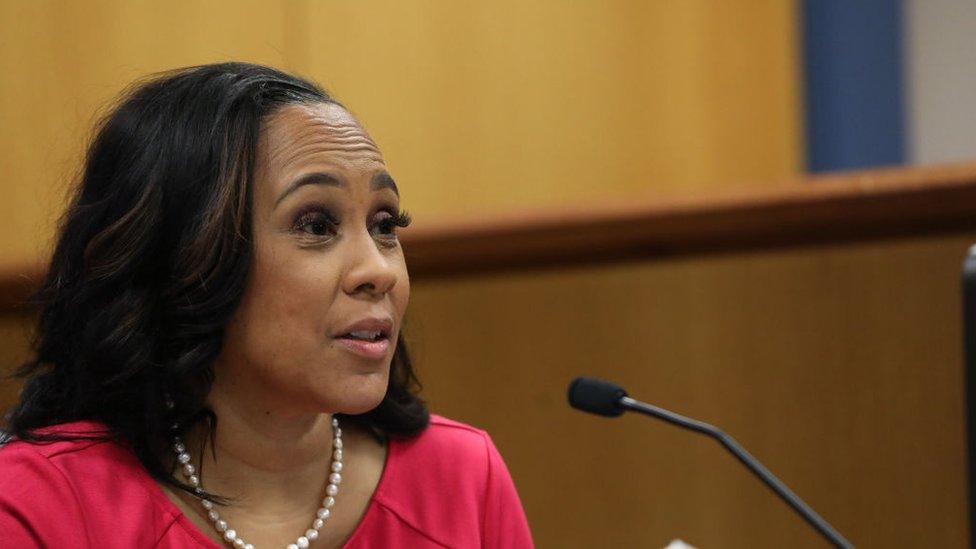Donald Trump's hush-money trial set to begin in March
- Published
Watch: Why Trump will face his first criminal trial in March
The first-ever criminal trial of a former US president is set to start next month, with Donald Trump defending himself against allegations of conducting a hush-money cover-up.
The 77-year-old appeared in court in New York on Thursday, seeking to have the trial dismissed or delayed.
But Judge Juan Merchan was not swayed by arguments that the trial's timetable would hurt his presidential campaign.
Mr Trump called the decision to start the trial on 25 March a "disgrace".
"Obviously I'm running for election again. How can you run for election and be sitting in a courthouse in Manhattan all day long?" he said outside the courtroom after the hearing.
Mr Trump's lawyers had made similar arguments during the pre-trial hearing, but the New York state judge said they were not rooted in law and that he would only delay for legal reasons.
Mr Trump is widely expected to become the Republican nominee for president and face President Joe Biden, a Democrat, in an election rematch in November. He must still go through state primaries to secure the nomination.
Manhattan District Attorney Alvin Bragg has charged the former president with 34 counts of fraud, alleging Mr Trump falsified business records to disguise payments he made to adult film actress Stormy Daniels as legal fees.
Ms Daniels said she was paid $130,000 (£103,000) in 2016 to stay quiet about having sex with the then-presidential candidate. Mr Trump denies they ever had an affair.
This is one of four criminal cases against the former president.
The first step of the New York trial will be putting together a jury of 12 people.
Lawyers and the judge discussed on Thursday how to select jurors for the unprecedented case, given Mr Trump's global fame and the deep political divisions around him.
EXPLAINED: What Trump's first criminal trial could look like
Lawyers from both sides will be able to dismiss people from sitting on the jury. Justice Merchan told them that if they plan to strike possible jurors because they are Democrats or Republicans, then they are going to run out of people very quickly.
Prosecutors said they want to ask about some of the most controversial parts of the 2020 presidential election in a screening questionnaire for potential jurors, such as if they believe the election was stolen, if they believe in the QAnon conspiracy theory and if they have belonged to far-right militia groups or far-left groups like Antifa.
Prosecutors also want to expand a question about which news media a potential juror consumes to include right-wing commentators such as Sean Hannity, Alex Jones and Tucker Carlson.
The defence brought up asking jurors if they ever put a political bumper sticker on their car or candidate sign on their lawn.
There are also potential questions about whether a juror has read or listened to anything from the prosecution's expected star witness, Mr Trump's former lawyer, Michael Cohen, or if they have read Mr Trump's book The Art of the Deal.
The hearing on Thursday coincided with a separate hearing in Georgia, where a judge is weighing up misconduct allegations against prosecutor Fani Willis, Ms Willis is leading an election fraud case against Mr Trump in the state.
- Published28 August 2024

- Published21 May 2024

- Published16 February 2024
